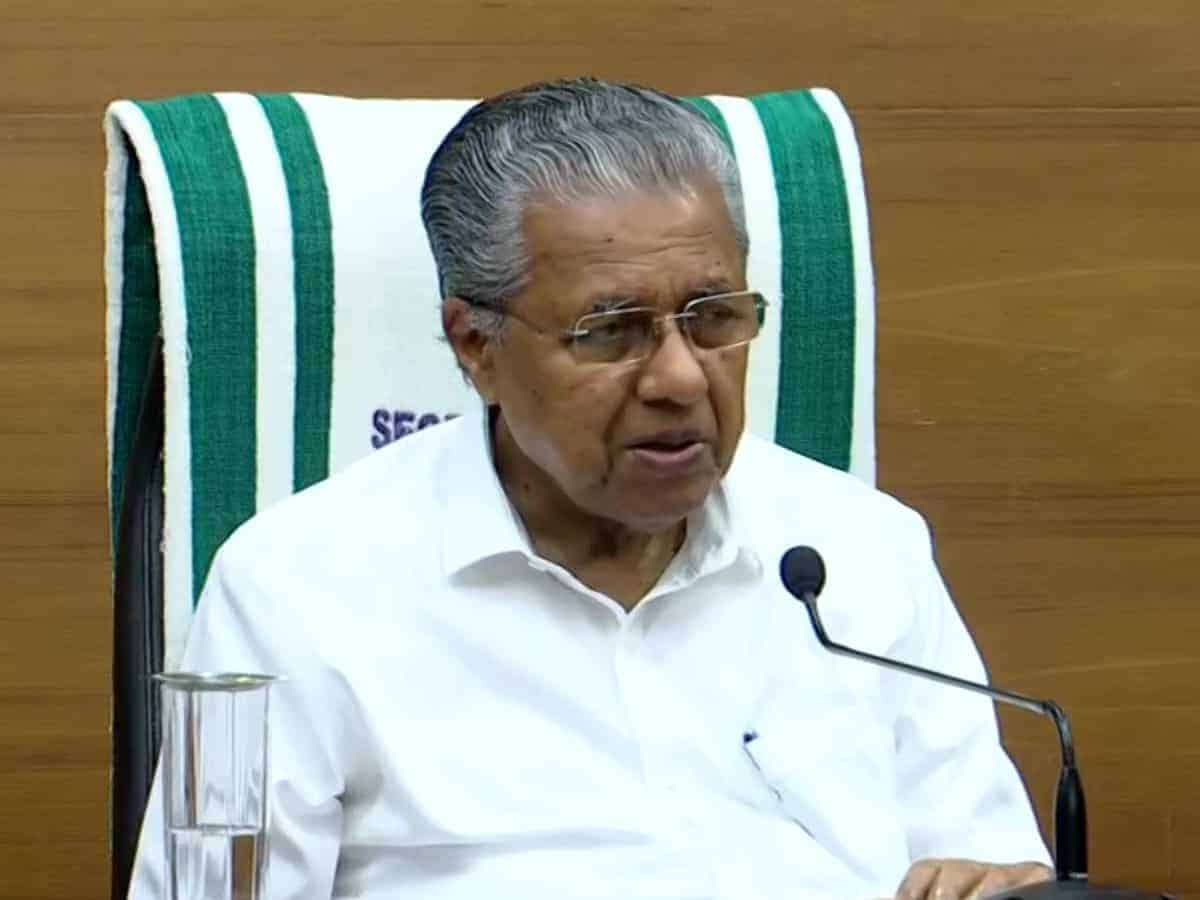
Thiruvananthapuram: The Kerala assembly on Tuesday unanimously adopted a resolution urging the BJP-led central government to refrain from implementing the Uniform Civil Code (UCC) in the country.
Earlier in February, the Mizoram assembly had unanimously adopted an official resolution opposing any move to implement the UCC in the country.
On Tuesday, Kerala Chief Minister Pinarayi Vijayan moved a resolution in the House against the UCC by terming it as a “unilateral and hasty” action on the part of the Centre.
Vijayan contended that the UCC as visualised by the Sangh Parivar was not according to the Constitution, rather it was based upon the Hindu legal text ‘Manusmriti’.
“That has been made clear by Sangh Parivar long back. They are not trying to implement something that is there in the Constitution. There is no need to misunderstand it like that,” he said.
Vijayan contended that the ruling BJP government at the Centre only criminalised the divorce laws under the Muslim personal law, but has not done anything to ensure safety and security of women or take steps for the welfare of the marginalised.
After the resolution was moved by the Chief Minister, several amendments and modifications were suggested by the Congress-led opposition UDF that welcomed the Left government’s move.
After taking into account the modifications suggested, the Chief Minister read out the finalised resolution in which he said that the state assembly was concerned and dismayed with the Centre’s move to impose UCC as it was a unilateral and hasty decision that would take away the secular character of the country.
Vijayan said the Constitution refers to having a general civil law only as a directive principle and it is not mandatory.
He said that when the freedom of religion is guaranteed under Article 25 of the Constitution and includes the right to follow and practice religious personal rules, any legislation prohibiting that would be a violation of the constitutional right.
The Chief Minister further contended that Article 44 of the Constitution merely states that the State shall endeavor to establish a common civil code.
He said that any such move has to be preceded by debates and discussions to create a consensus among the people and not doing so was concerning.
He said that the Kerala assembly too shares this concern and believes that imposition of UCC is a “non-secular move” to attack the unity of the people and the nation as a whole.
Vijayan said that even in the Constituent Assembly debates, there were differences of opinion with regard to the UCC and B R Ambedkar’s position at that time was that the Parliament can try to bring a general civil law, but he did not insist that it should be compulsory. “He only indicated a possibility,” the Chief Minister contended.
The CPI(M)-led government’s decision to move the resolution came amid an ongoing campaign against the UCC by both the ruling Left and the opposition UDF in the state, as well as various religious organisations in the state.
Both the fronts had organised seminars separately in Kozhikode recently against the UCC, in which the representatives of various religious outfits took part.
The Law Commission of India had last month received submissions from the public regarding suggestions on implementing the UCC in the country.
In a recent statement, the Chief Minister alleged that the “electoral agenda” of the BJP was behind raking up the issue of the UCC and urged the Centre to withdraw from the move to impose it.
Vijayan, who is also a senior leader of the CPI(M), has said the Centre’s move can only be seen as a plan to implement the “majority communal agenda of ‘one nation, one culture’ by wiping out the cultural diversity of the country”.
“The Central government and the Law Commission should withdraw from the move to impose the Uniform Civil Code,” he has said.



